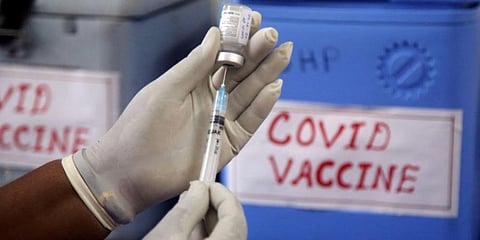WTO's TRIPS Council to continue discussion on proposal of IPR waiver to deal with COVID on Wednesday
NEW DELHI: The TRIPS Council of the World Trade Organization (WTO) will continue its discussion on Wednesday in Geneva on a proposal submitted by India and South Africa seeking patent waivers to manufacture COVID-19-related medical products, an official said.
In October 2020, India and South Africa had submitted the first proposal suggesting a waiver for all WTO members on the implementation of certain provisions of the TRIPS Agreement in relation to the prevention, containment or treatment of COVID-19.
In May this year, a revised proposal was submitted by 62 co-sponsors, including India, South Africa and Indonesia.
The agreement on Trade-Related Aspects of Intellectual Property Rights or TRIPS came into effect in January 1995.
It is a multilateral agreement on intellectual property (IP) rights such as copyright, industrial designs, patents and protection of undisclosed information or trade secrets.
"The WTO members will continue tomorrow at the TRIPS Council the discussion on the proposal for a waiver from certain provisions of the TRIPS Agreement for the prevention, containment and treatment of COVID-19," the official said.
A large number of delegations remain to take the floor on this issue when the Council resumes on Wednesday in Geneva.
According to the revised proposal, the waiver should be in force for at least three years from the date of the decision on the matter.
The co-sponsors have stated that the duration has to be practical for manufacturing to be feasible and viable.
The revised text has also proposed waiver for health products and technologies as the prevention, treatment or containment of COVID-19 which involves a range of things and "intellectual property issues may arise with respect to the products and technologies, their materials or components, as well as their methods and means of manufacture."

